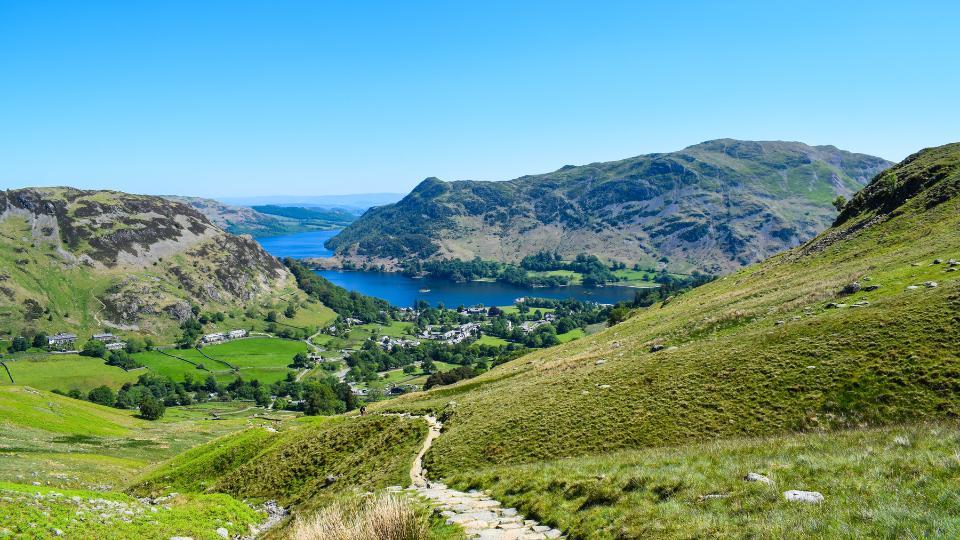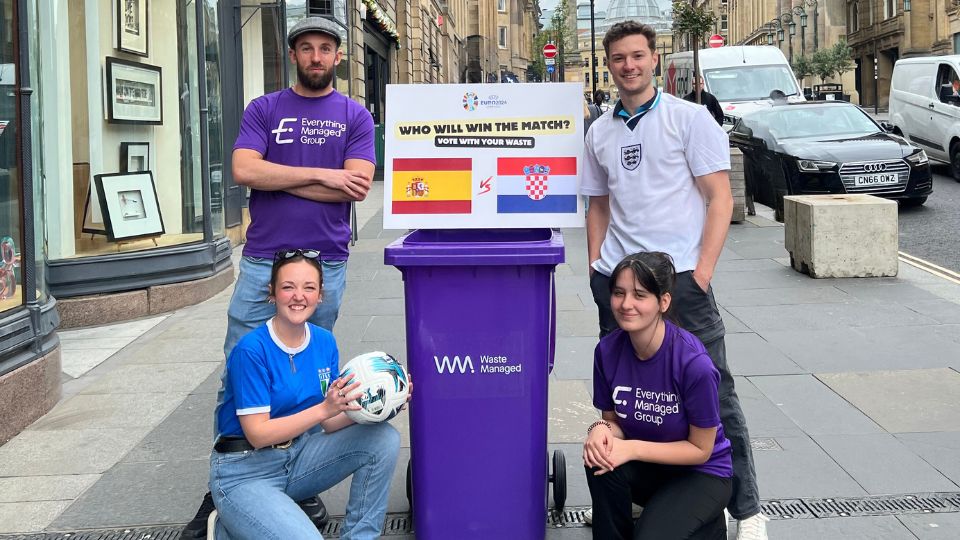
Nestled in the northwest of England, the Lake District is a cherished destination known for its picturesque landscapes, serene lakes, and majestic mountains.
However, the surge in tourism has brought about an alarming increase in waste and litter, posing a threat to the environment and the well-being of local communities.
Read on to learn more about the issue of waste and litter in the Lake District, exploring its detrimental impact on the environment, and wildlife, and the long-term damage it can inflict on this once pristine corner of our country.
What is the Impact of Litter in the Lake District?
Impact on Locals
The escalating issue of waste and litter in the Lake District not only affects the environment but also impacts the lives of local residents.
Increased tourism leads to additional pressure on infrastructure, waste management services, and resources, placing an undue burden on the community’s well-being and quality of life.
Damage to Wildlife
Litter in the Lake District poses a significant threat to the region’s wildlife.
Animals can become entangled in discarded items or mistake them for food, leading to injuries, suffocation, or ingestion of harmful materials.
Additionally, pollution from litter can contaminate water bodies, disrupting ecosystems and jeopardising the delicate balance of the region’s flora and fauna.
Long-Term Environmental Damage
The accumulation of waste and litter in the Lake District can cause long-term damage to the region’s ecosystems.
Plastic pollution, in particular, takes hundreds of years to degrade, persisting in the environment and infiltrating waterways.
The once-pristine beauty of the Lake District is at risk, as litter tarnishes the scenic landscapes, degrades the views, and erodes the essence of its natural allure.
If you’d like to learn more about how to report fly-tipping in the UK, you can read our dedicated blog.

Statistics about Waste and Litter in the Lake District
- In 2020, approximately 47 million visitors flocked to the Lake District, exacerbating the waste and litter problem. Lake District National Park Authority
- The Lake District produces an estimated 7,000 metric tons of waste annually, much of which is generated by tourists.
- According to a survey conducted in 2021, 72% of Lake District visitors admitted to leaving litter behind during their visit.
- Plastic bottles and wrappers account for a significant portion of litter found in the Lake District, with around 30% of litter being plastic-based.
- Cigarette butts are one of the most common forms of litter, constituting approximately 20% of the waste found in the Lake District.
- Food-related litter, including wrappers, packaging, and leftover picnic items, represents approximately 15% of litter in the Lake District.
- Glass bottles and broken glass account for approximately 10% of litter found in the Lake District.
- Despite efforts to combat littering, only 20% of litter in the Lake District is properly disposed of in designated bins.
- Littering incidents along hiking routes have increased by 25% in the past five years, making it a growing concern for the Lake District.
- Over 70% of litter found in the Lake District is classified as “long-lasting” litter, such as plastics and glass, which has a severe impact on the environment.
- The COVID-19 pandemic saw a surge in domestic tourism, leading to an increase in littering incidents and overstretched waste management services in the Lake District.
- In a recent study, it was found that 95% of seabirds in the Lake District’s coastal areas had plastic fragments in their stomachs, highlighting the extensive pollution caused by litter.
Long-Term Consequences and Mitigation
The accumulation of waste and litter in the Lake District carries severe long-term consequences.
If not addressed effectively, environmental degradation can have detrimental effects on local wildlife, fragile ecosystems, and the overall well-being of communities. To mitigate these issues, several steps can be taken:
- Strengthen Education and Awareness
Promote responsible tourism and educate visitors about the importance of proper waste disposal through targeted campaigns, visitor centers, and informative signage.
- Improve Waste Management Infrastructure
Increase the number of strategically placed trash bins, recycling facilities, and waste disposal areas at popular tourist spots, ensuring easy access and convenience for visitors.
- Implement Stricter Enforcement and Penalties
Enforce littering regulations rigorously, imposing fines on offenders, and enhancing monitoring and surveillance to deter littering behaviour.
- Foster Community Engagement
Encourage local communities, businesses, and volunteer groups to actively participate in regular clean-up initiatives, fostering a sense of pride and ownership in preserving the natural beauty of the Lake District.
- Advocate Sustainable Practices
Promote the use of reusable water bottles, and eco-friendly packaging, and encourage visitors to pack out their waste, particularly during hikes and outdoor activities.
- Collaborate with Tourism Industry
Engage with accommodation providers, tour operators, and other tourism-related businesses to raise awareness about waste management practices and encourage responsible tourism.
- Invest in Research and Innovation
Support research initiatives to explore innovative waste management solutions, such as biodegradable packaging and sustainable materials, to reduce the overall environmental impact of waste.
- Promote Local Initiatives
Encourage the development of local initiatives, such as litter picking schemes and recycling programmes, to actively involve residents and businesses in waste reduction efforts.
- Strengthen Partnerships
Collaborate with environmental organisations, government agencies, and local stakeholders to develop comprehensive strategies and coordinated efforts in tackling waste and litter issues.
- Monitor and Assess Progress
Continuously evaluate the effectiveness of waste management initiatives, monitor littering patterns, and collect data to assess progress and make informed decisions for future improvements.
- Support Sustainable Tourism Practices
Encourage tourists to explore alternative modes of transportation, such as public transport or cycling, to reduce carbon emissions and minimise the impact on the environment.
- Preserve and Restore Ecosystems
Implement measures to restore damaged ecosystems, protect wildlife habitats, and prevent further degradation of the Lake District’s natural heritage.
Waste and litter in the Lake District pose a significant threat to the environment, wildlife, and local communities.
The long-term damage inflicted by litter can erode the natural beauty of the region, disrupt ecosystems, and harm the well-being of residents.
However, through education, improved infrastructure, community engagement, and sustainable practices, we can mitigate these challenges and safeguard the pristine landscapes and biodiversity of the Lake District for future generations.
The government are also offering tax relief for those willing to commit to cleaning up contaminated land.
Preserving this precious corner of our country requires a collective effort and a commitment to responsible tourism and environmental stewardship.








